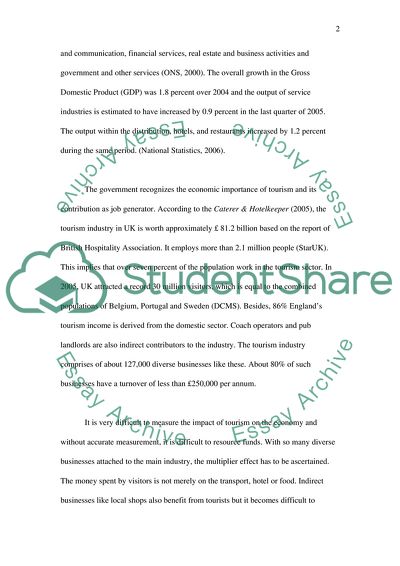Cite this document
(Size and Structure of the Tourism Industry in the UK Assignment, n.d.)
Size and Structure of the Tourism Industry in the UK Assignment. https://studentshare.org/tourism/1703921-provide-a-brief-overview-of-the-size-and-structure-of-the-tourism-industry-in-uk-and-discuss-its-importance-to-the-national-economy
Size and Structure of the Tourism Industry in the UK Assignment. https://studentshare.org/tourism/1703921-provide-a-brief-overview-of-the-size-and-structure-of-the-tourism-industry-in-uk-and-discuss-its-importance-to-the-national-economy
(Size and Structure of the Tourism Industry in the UK Assignment)
Size and Structure of the Tourism Industry in the UK Assignment. https://studentshare.org/tourism/1703921-provide-a-brief-overview-of-the-size-and-structure-of-the-tourism-industry-in-uk-and-discuss-its-importance-to-the-national-economy.
Size and Structure of the Tourism Industry in the UK Assignment. https://studentshare.org/tourism/1703921-provide-a-brief-overview-of-the-size-and-structure-of-the-tourism-industry-in-uk-and-discuss-its-importance-to-the-national-economy.
“Size and Structure of the Tourism Industry in the UK Assignment”. https://studentshare.org/tourism/1703921-provide-a-brief-overview-of-the-size-and-structure-of-the-tourism-industry-in-uk-and-discuss-its-importance-to-the-national-economy.


